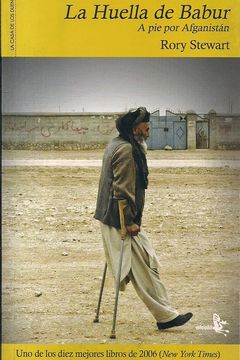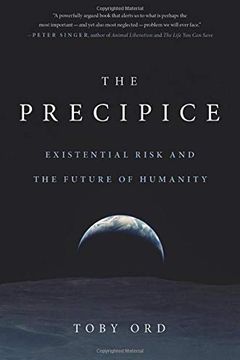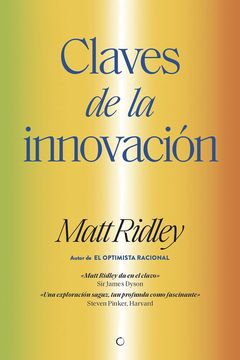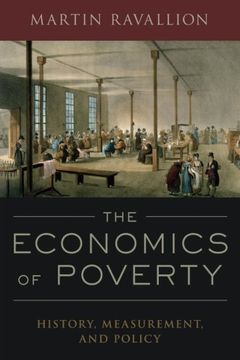11 libros en la lista
Ordenar por
Últimas recomendaciones primero
Diseño
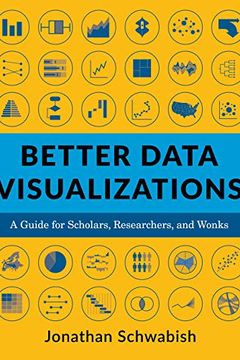
Better Data Visualizations
A Guide for Scholars, Researchers, and Wonks
Learn how to create more effective and compelling data visualizations with this essential guide. In today's world where readers are constantly bombarded with data and text, visuals can make it easier for them to recognize and recall information. This book by Jonathan Schwabish offers more than 500 examples and strategies to move beyond simple line, bar, and pie charts. Discover the do's and don'ts of data visualization, principles of visual perception, and how to make subjective style decisions around chart design. Explore more than 80 visualization types suitable for different audiences and goals. Anyone can create outstanding visualizations that clearly communicate their message.
Max Roser
2023-01-13T16:27:39.000ZRecomendado por
Kirk Borne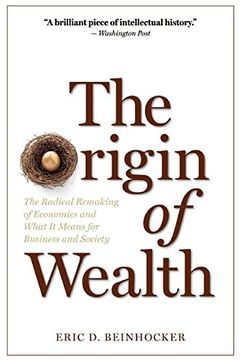
The Origin of Wealth
The Radical Remaking of Economics and What it Means for Business and Society
Explore the fascinating complexity of the global economy in this thought-provoking book. Eric D. Beinhocker uses modern science to provide insights into how wealth is created and how it can be increased to benefit individuals, businesses, and society. He argues that the economy is a "complex adaptive system" with novel products, new ideas, and increasing wealth constantly evolving from the interaction between physical and social technologies and business designs. This landmark book takes readers on a journey through economic history, from the Stone Age to modern times, offering a fresh perspective on government policies, stock markets, and adaptive organizations.
Max Roser
2021-04-30T15:19:21.000ZEn enero del año 2002, Rory Stewart caminó a través de Afganistán sobreviviendo gracias a su ingenio, a su conocimiento de los dialectos persas y de las costumbres musulmanas, y a la amabilidad de gentes extrañas. Atravesó de día montañas cubiertas de un metro de nieve, caseríos incendiados y arrasados por los Talibanes, y comunidades florecientes en medio de los restos de civilizaciones medievales. Y de noche durmió en el suelo de los poblados, compartiendo la comida de sus habitantes y escuchando sus historias del pasado tanto antiguo como reciente.
Max Roser
2021-03-12T00:03:39.000ZRecomendado por
Steve SchaleBy the winner of the 1998 Nobel Prize in Economics, an essential and paradigm-altering framework for understanding economic development—for both rich and poor—in the twenty-first century.
Freedom, Sen argues, is both the end and most efficient means of sustaining economic life and the key to securing the general welfare of the world's entire population. Releasing the idea of individual freedom from association with any particular historical, intellectual, political, or religious tradition, Sen clearly demonstrates its current applicability and possibilities. In the new global economy, where, despite unprecedented increases in overall opulence, the contemporary world denies elementary freedoms to vast numbers—perhaps even the majority of people—he concludes, it is still possible to practically and optimistically regain a sense of social accountability. Development as Freedom is essential reading.
Max Roser
2021-02-26T10:39:16.000ZRecomendado por
Sarah TaberThe story of how smallpox, the most deadly disease in history, was eradicated from the face of the earth is a gripping one. Dr. D.A. Henderson, director of the global campaign to eliminate smallpox, details how he and his team navigated civil wars, cultural obstacles, and bureaucratic challenges in their quest to eliminate smallpox. Henderson's engaging narrative highlights the international cooperation and perseverance required to accomplish the seemingly impossible. A remarkable scientific and humanitarian achievement, this book is a testament to the power of human will and cooperation.
Max Roser
2020-12-16T11:29:07.000ZProtecting humanity's future is the central challenge of our time, according to this urgent and eye-opening book. Exploring the cutting-edge science behind existential catastrophes such as climate change, artificial intelligence, and engineered pathogens, the author shows how ending these risks is among the most pressing moral issues of our time. Through over a decade of research, he offers a startling reassessment of human history and the steps we must take to ensure that our generation is not the last.
Max Roser
2020-12-01T10:44:38.000ZInnovation is the main event of the modern age, the reason we experience both dramatic improvements in our living standards and unsettling changes in our society. Forget short-term symptoms like Donald Trump and Brexit, it is innovation itself that explains them and that will itself shape the 21st century for good and ill. Yet innovation remains a mysterious process, poorly understood by policy makers and businessmen, hard to summon into existence to order, yet inevitable and inexorable when it does happen.
Matt Ridley argues in this book that we need to change the way we think about innovation, to see it as an incremental, bottom-up, fortuitous process that happens to society as a direct result of the human habit of exchange, rather than an orderly, top-down process developing according to a plan. Innovation is crucially different from invention, because it is the turning of inventions into things of practical and affordable use to people. It speeds up in some sectors and slows down in others. It is always a collective, collaborative phenomenon, not a matter of lonely genius. It is gradual, serendipitous, recombinant, inexorable, contagious, experimental and unpredictable. It happens mainly in just a few parts of the world at any one time. It still cannot be modelled properly by economists, but it can easily be discouraged by politicians. Far from there being too much innovation, we may be on the brink of an innovation famine.
Ridley derives these and other lessons, not with abstract argument, but from telling the lively stories of scores of innovations, how they started and why they succeeded or in some cases failed. He goes back millions of years and leaps forward into the near future. Some of the innovation stories he tells are about steam engines, jet engines, search engines, airships, coffee, potatoes, vaping, vaccines, cuisine, antibiotics, mosquito nets, turbines, propellers, fertiliser, zero, computers, dogs, farming, fire, genetic engineering, gene editing, container shipping, railways, cars, safety rules, wheeled suitcases, mobile phones, corrugated iron, powered flight, chlorinated water, toilets, vacuum cleaners, shale gas, the telegraph, radio, social media, block chain, the sharing economy, artificial intelligence, fake bomb detectors, phantom games consoles, fraudulent blood tests, faddish diets, hyperloop tubes, herbicides, copyright and even – a biological innovation -- life itself.
Max Roser
2020-10-10T11:05:49.000Z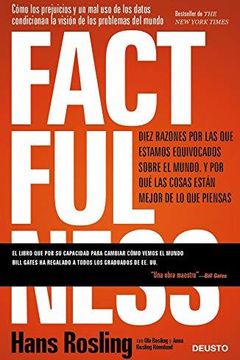
Factfulness
Diez razones por las que estamos equivocados sobre el mundo. Y por qué las cosas están mejor de lo que piensas
Cuando se hacen preguntas sencillas sobre las tendencias mundiales: ¿qué porcentaje de la población mundial vive en la pobreza? ¿Por qué la población mundial está aumentando? ¿cuántas chicas terminan la escuela? Sistemáticamente obtenemos las respuestas incorrectas. Tan incorrectas que incluso un chimpancé eligiendo las respuestas al azar superará siempre a los maestros, periodistas, premios Nobel y banqueros de inversión.
En Factfulness, el profesor de Salud Internacional y el fenómeno TED global Hans Rosling, junto con sus dos colaboradores, Anna y Ola, ofrece una nueva y radical explicación de por qué sucede esto. Nos revelan los diez instintos que distorsionan nuestra perspectiva: desde nuestra tendencia a dividir el mundo en dos campos (generalmente en nosotros y de ellos) a la forma en que consumimos los medios (donde el miedo gobierna) y cómo percibimos el progreso (creyendo que todo está empeorando). Nuestro problema es que no sabemos lo que no sabemos y que, incluso nuestras suposiciones, se basan en prejuicios inconscientes y predecibles. Resulta que el mundo, a pesar de sus imperfecciones, está en un estado mucho mejor de lo que podríamos pensar. Eso no significa que no haya preocupaciones reales. Pero cuando nos preocupamos por todo constantemente, en lugar de adaptar una cosmovisión basada en hechos, podemos perder nuestra capacidad de enfocarnos en las cosas que más nos amenazan.
Inspiradora y reveladora, llena de anécdotas e historias conmovedoras, Factfulness es un libro urgente y esencial que cambiará la forma de ver el mundo y le permitirá responder a las crisis y oportunidades del futuro.
Max Roser
2020-06-07T15:25:27.000ZLearn about the current state of poverty in the world, and why progress for poor people is not guaranteed. Inequalities in key resources threaten poverty reduction in many places, leaving the world's poorest with a small absolute gain over the last 30 years. In "The Economics of Poverty," explore the measurement, existence, and inevitability of poverty, as well as solutions for reducing or eliminating it. This book provides an accessible synthesis of current economic thinking to help readers understand poverty's impact and how to address it.
Max Roser
2020-01-28T21:06:12.000ZSeeds of Science by Mark Lynas
London by James Cheshire
